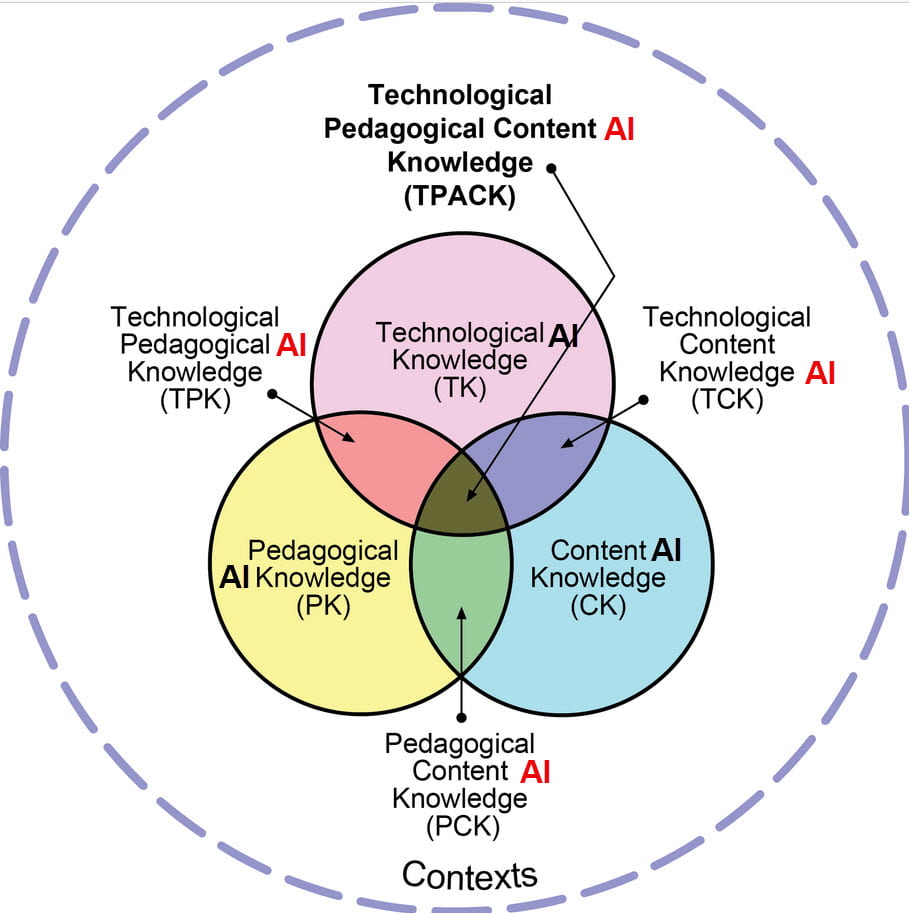Gary Ackerman had a post this week in which he took another look at his understanding of TCPK, introduced by Mishra and Koehler in 2006. This framework explored the combinations of technological, pedagogical and content knowledge, with the sweet spot being TCPK – Technological Pedagogical Content Knowledge. I have been blogging about TCPK since 2008, and it has informed much of my work with faculty.
I was a bit surprised that Gary did not mention GenAI in his new look at TCPK, as to me, it is very relevant.
For the last 15+ years, TCPK (or TPACK as the authors called it) has been a useful framework for planning and decision-making in instructional technology. I would suggest that moving forward, it is important as a framework to consider one’s technological knowledge of GenAI (TK-AI), as well as how one might teach with it (PK-AI), and how one might use and critique what AI develops (CK-AI).
To enhance TK, GenAI could be used to create adaptive tutorials and guides to help educators and students learn, reducing any technological knowledge gaps. GenAI could enhance PK by analyzing and summarizing the vast amounts of educational research. CK could be enhanced by using GenAI to create comprehensive, up-to-date repositories for numerous subject matter fields. GenAI systems could monitor and suggest TCPK implementation ideas for both faculty and instructional design professionals.
By integrating GenAI with the TPCK framework, we can create more dynamic, adaptive, and personalized educational environments that continuously evolve to meet the needs of both educators and students. This integration could potentially address some of the challenges in implementing TPACK, such as the difficulty in transferring skills across domains, by providing targeted support and resources.
{Graphics: Mishra and Koehler, DALL-E}


